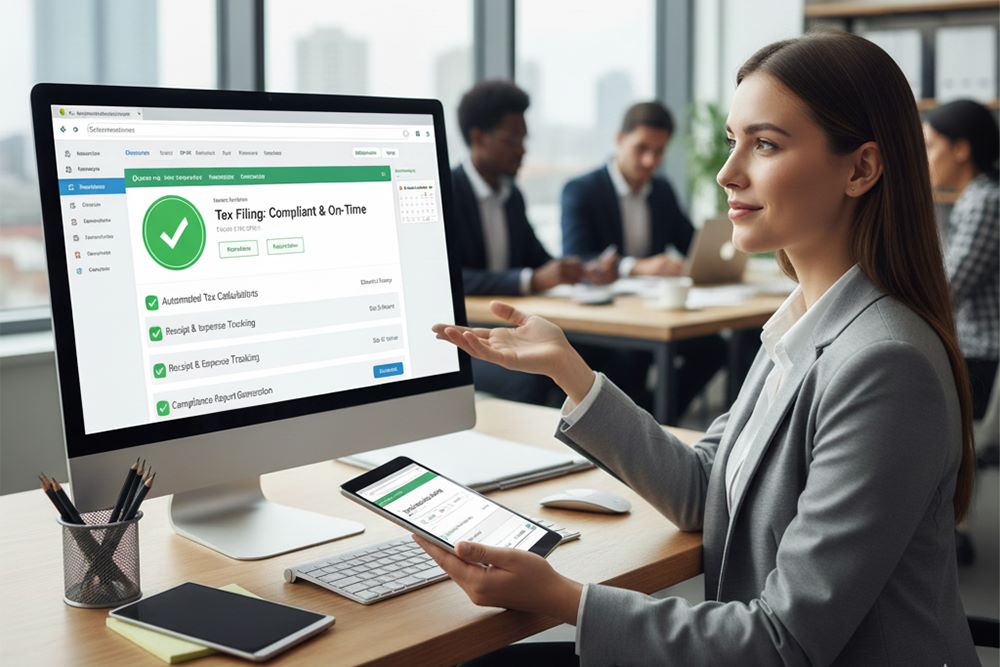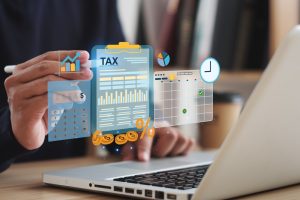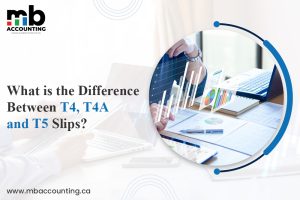For small business owners, managing finances and staying compliant with tax laws can be one of the most challenging aspects of entrepreneurship. Between tracking expenses, preparing reports, and keeping up with ever-changing tax regulations, it’s easy to see why many business owners feel overwhelmed. Thankfully, technology has transformed this landscape. Modern accounting software makes it easier than ever for small businesses to remain organized, accurate, and compliant. With tools such as IRS reporting tools, automated bookkeeping, and tax preparation software, small businesses can save time, reduce human error, and focus more on growth.
This article explores how accounting software streamlines compliance, why it’s critical for small businesses, and how it ensures peace of mind during tax season.
Why Tax Compliance Is Critical for Small Businesses
Tax compliance is not optional—it’s essential. Failing to accurately report income, expenses, or payroll taxes can result in fines, penalties, or even audits. For small businesses with limited resources, the financial and reputational consequences can be devastating.
Beyond penalties, compliance also impacts credibility. Businesses that maintain accurate financial records gain trust from banks, investors, and clients. Reliable accounting demonstrates professionalism and positions the business for long-term success. This is where accounting compliance software comes in. By automating processes, organizing records, and providing accurate reporting, these solutions give business owners the tools to remain confident in their compliance efforts.
Automating Bookkeeping for Accuracy
Bookkeeping is the foundation of tax compliance. Without accurate records of income and expenses, businesses risk misreporting their taxes. Traditional manual bookkeeping—whether with spreadsheets or handwritten ledgers—is time-consuming and error-prone.
Modern accounting platforms now offer automated bookkeeping features that eliminate these risks. By syncing directly with bank accounts, credit cards, and point-of-sale systems, transactions are automatically categorized and recorded in real time.
This automation ensures:
-
Accurate expense tracking for deductions.
-
Real-time financial reporting.
-
Easy reconciliation of accounts.
For small businesses, automated bookkeeping not only saves hours of work but also ensures that every dollar is accounted for, which is critical during tax season.
Streamlined Tax Preparation
Tax season is often dreaded by business owners, but tax preparation software integrated within accounting platforms is changing that. Instead of scrambling to collect receipts and invoices, businesses have access to organized, categorized financial data ready for filing.
Tax preparation software helps by:
-
Generating tax-ready reports.
-
Flagging incomplete or suspicious transactions.
-
Calculating estimated quarterly taxes.
-
Ensuring that deductions are properly applied.
By connecting with compliance platforms, these tools make filing taxes less stressful and much faster. Small businesses no longer have to wait until the last minute to organize their finances—everything is ready at their fingertips.
IRS Reporting Tools for Compliance
For U.S.-based small businesses, filing with the IRS is one of the most important compliance requirements. IRS reporting tools built into accounting software simplify this process dramatically.
Instead of manually creating complex tax forms, these tools can automatically generate required documents, such as:
-
1099s for contractors.
-
W-2s for employees.
-
Payroll tax filings.
These integrations ensure that businesses comply with IRS requirements on time and with fewer errors. By using built-in IRS reporting tools, businesses can file electronically, receive confirmations, and avoid the risks associated with manual submissions.
The Benefits of Accounting Compliance Software
1. Reduced Errors
Manual accounting is prone to mistakes. Misplacing a decimal or forgetting to record a transaction can trigger costly errors. Accounting compliance software minimizes these risks with automation, accuracy checks, and built-in compliance reminders.
2. Time Savings
What used to take hours can now be done in minutes. Automated categorization of expenses, automatic report generation, and scheduled tax reminders free up valuable time for business owners.
3. Real-Time Insights
Most platforms provide dashboards with financial insights. Business owners can track revenue, expenses, and profitability at a glance, making it easier to make informed decisions while also staying tax-ready.
4. Integration with Other Tools
Modern systems often integrate with payroll, inventory management, and even e-commerce platforms. These connections ensure that all financial data flows into one system, simplifying tax filing and compliance.
5. Peace of Mind
Perhaps the greatest benefit is confidence. Knowing that records are accurate, up-to-date, and compliant with tax regulations gives business owners peace of mind when dealing with the IRS or other authorities.
Real-World Example: A Small Retail Store
Consider a small retail store that once struggled with tax compliance. The owner used spreadsheets to track sales, manually entered expenses, and often fell behind on quarterly tax filings. Every tax season, their accountant spent weeks trying to organize the data, which increased costs and caused stress.
After adopting accounting compliance software, the business:
-
Synced its bank accounts and POS system with the platform.
-
Automated expense categorization and reconciliations.
-
Used built-in tax preparation software to calculate estimated taxes.
-
Filed accurate 1099s through IRS reporting tools.
The result? The business filed on time, avoided penalties, and gained better control over its financial health.
How Software Supports Growth
Accounting software isn’t just about compliance—it also supports growth. With accurate records, businesses can secure loans, attract investors, and manage cash flow effectively. Cloud-based platforms even scale with the business, supporting additional users, more complex reporting, and multi-location management.
In this way, accounting compliance software becomes an investment in growth, not just a tax-season tool.
Future Trends in Accounting and Compliance
The future of tax compliance is becoming even more digital. Some trends shaping the future include:
-
Artificial Intelligence (AI): AI-powered platforms will analyze transactions, identify potential deductions, and predict tax liabilities.
-
Blockchain: Could improve transparency and reduce fraud in financial reporting.
-
Deeper IRS Integration: Expect even more robust IRS reporting tools for faster, more seamless filing.
-
Mobile-First Accounting: With mobile apps, business owners can manage compliance anywhere, anytime.
Small businesses that adopt these tools early will be ahead of the curve in managing compliance effortlessly.
Common Mistakes Businesses Avoid with Accounting Software
-
Missing Deadlines: Automated reminders prevent missed filing dates.
-
Improper Expense Tracking: Categorization tools ensure deductions are maximized.
-
Payroll Errors: Automated payroll reduces incorrect tax withholdings.
-
Audit Risks: Organized, digital records simplify audits and reduce stress.
By eliminating these mistakes, accounting compliance software helps businesses stay compliant year after year.
Conclusion
Staying tax compliant is one of the biggest challenges for small businesses, but it doesn’t have to be. With modern accounting compliance software, entrepreneurs can automate bookkeeping, simplify reporting, and reduce costly errors. Tools like IRS reporting tools and tax preparation software provide the accuracy and efficiency needed to file with confidence.
For small business owners, adopting these systems isn’t just about surviving tax season—it’s about building a strong foundation for financial success. The right software saves time, reduces stress, and ensures compliance, letting entrepreneurs focus on what matters most: growing their business.
FAQ’s
Q1. Can accounting software prevent tax errors?
A: Yes. Accounting software reduces tax errors by automating bookkeeping, categorizing expenses, and integrating tax preparation software with IRS reporting tools. This ensures accuracy, compliance, and peace of mind for small businesses.
Q2. Which accounting software is best for US taxes?
A: Popular choices include QuickBooks, Xero, and Wave. Each offers accounting compliance software features with IRS reporting tools and automated bookkeeping functions, making tax season easier for U.S. small businesses.






















